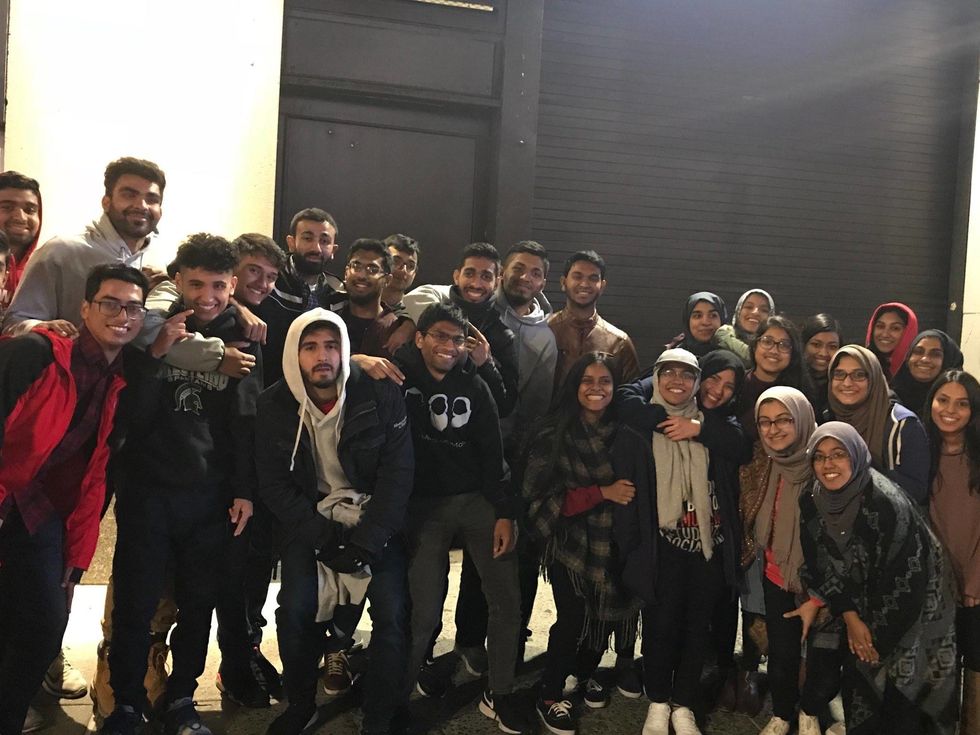This past month featured the end of Ramadan, the holy month of fasting for Muslims worldwide, and the beginning of the Eid celebrations that mark such an occasion. Amidst the joyous pleasantries, my uncles and aunts, along with their families, swung by my house for a well-planned family reunion. I was excited to see them after so long, but my joy was tempered by my aunt's quick remark, akin to a morbid diagnosis:
"Oh, you've gotten so dark! You shouldn't run outside, otherwise, you'll get even darker!"
The South Asian community within the United States has endured its own fair share of racial and religious turbulence in the past, with most Americans of a lighter complexion constantly questioning our patriotism and discussing our cultural habits as if they were scientific specimens to be dissected instead of appreciated. The recent surge in Islamic terrorism has only worsened the issue, with many viewing us as foreigners and enemies despite my generation having grown up our entire lives in this great nation. Yet, we cannot turn a blind eye towards our own internalized colorism that has carried on throughout generations, consistently ingrained in the back of our minds ever since we were children.
As kids, we were told to not get too dirty playing outside, and chastised if we spent too much time soaking up the sun and growing darker in complexion—indeed, I know of some families who view their lighter skinned children with more favor than their darker counterparts. Even as adults, we are constantly criticized by our elders (who view lighter skin as a sure sign of beauty) for being too dark, and recommended products such as "Fair and Lovely"—as if our complexion was the ONLY determining factor in our worth.
I can't even begin to imagine the treatment that South Asian women are forced to endure from these same elders; the constant threat that they will never be seen as desirable for marriage without "pure" skin is an entrenched belief that causes many to experiment with questionable products for the mere sake of trying to "beautify" themselves—as if beauty was merely an external currency to measure one's value and not determinant upon the soul of a human being.
Our communities have also extended this perception of dark skin as an affliction towards being dismissive of our fellow African American brothers and sisters—we treat them with a silent disdain in public, and ridicule their cultural experiences just as ours are ridiculed, as if we are somehow better than them based on some arbitrary determination of skin color, regardless of whether or not they choose to accept Islam.
I can't even describe the countless instances I have witnessed an African American Muslim brother step foot in a Masjid and see faces of disapproval directed at him simply because of his complexion; I've even known others who simply choose not to come to the Masjid anymore because of the racism they endure from their own fellow Muslim community. We talk a lot about racism directed at us, and at how Islam demonizes the very notion of segregation based on pigmentation, but we truly are hypocrites when it comes to our own toxic white fetish, and our actions are a clear indication of it.
It's time we address our own racism and work as a community to eradicate the stigmas that bind us so that we can learn to embrace and accept all regardless of race, religion or creed.
Our very own Prophet Muhammad (SAW) told us as Muslims that none of us is superior to anyone except by the piety of our actions and the love in our hearts for all humankind, so let's work towards this goal.
This may not be a mission that can be accomplished overnight—such deep-rooted stereotypes are nigh on impossible to completely wipe out—but we can be conscious of our words and actions and do a better job at understanding each other so that we can all unite as one people.

















